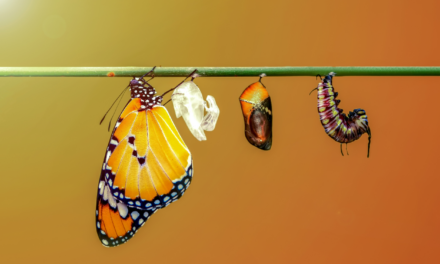To celebrate Earth, the beautiful, mysterious and sometimes breathtaking place we all call home, and to encourage the fact that every day should be considered Earth Day, here are some noteworthy sustainable and game-changing companies throughout the world that make it their mission. They represent a variety of industries and services and each has their own challenges in how they continue to grow and adapt in the important facets of the ever-evolving conditions of both business and the environment. In fact, a recent article featured in The Guardian clearly illustrates how the value of nature is innately embedded in the world of business.
Each company is categorized by their corporate location with information and links to learn more about their social responsibility and sustainability work. Discover the top five companies headquartered in Texas coming soon.
International Headquartered Companies
Ferrovial
The world’s leading private investor in transportation and urban infrastructure services, Ferrovial is a member of both the Dow Jones Sustainability and FTSE4good investment indices, each comprised of global companies that meet high CSR standards. They also have an Environmental Performance Index, the first of its kind, to track the company’s global environmental performance in real time. Ferrovial’s commitment is to reduce the environmental impact of their activities, maintain a preventive pro-environment approach and cut the company’s global carbon footprint. Learn more about their environmental programs and sustainability index here.
Weyerhauser
One the biggest players in the global forest products industry, Weyerhauser owns 6.6 million acres of commercial timberland worldwide and another 15.2 million acres on long-term leases in Canada. According to their website, 99% of these forests are certified to sustainable forestry standards. Weyerhauser is considered one of the ten most socially responsible companies in the world and creates sustainable solutions to the world’s challenges through the development of innovative forest products that are essential to everyday lives. For more than a century, they’ve managed a precious renewable resource to provide shelter, create green energy and make lives more comfortable. They are long-term stewards of our shared environment and committed to continuous improvement by practicing sustainable forestry, conserving natural resources and reducing waste and pollution. Read more about their sustainability work in action here.
IKEA
IKEA practices “responsibility beyond home furnishing.” Improvements they’ve made for people and the environment include utilizing transporting goods in flat packs, investing heavily in solar energy (especially in France and Germany), using alternative fuel known as Bio30, which contains a 30% blend of rapeseed oil and they also cooperate with World Wildlife Fund and the Rainforest Alliance with the Fortified Stewardship Council in China, one of the largest wood sourcing countries. Read more about their Never Ending List of improvements for people and the environment including an amazing amount of topics—eighty-two!
Telenor Group
Telenor Group is one of the leading mobile operators in the world, offering communication services in thirteen countries across Europe and Asia including Norway, Sweden, Denmark, Hungary, Serbia, Montenegro, Thailand, Malaysia, Bangladesh, Pakistan and India. They rank among the top global sustainability leaders and their efforts in three areas to create shared value with them and society including making a positive impact on underserved groups in telecommunications, providing safe services and user experience as well as fighting climate change, minimizing their greenhouse gas emissions and supporting sustainable growth. In fact, in 2008 Telenor Group announced they would reduce their carbon intensity of global operations by 40% by 2017. In 2012, they took part in a new ICT industry report that provided analysis of how smart use of communication technology in many parts of society can contribute to a 16.5% reduction in global greenhouse gas by 2020. They also have an extensive waste management program as e-waste is the most rapidly growing segment of the municipal waste stream. Read more information about their sustainability, environmental and climate responsibility and waste management program.
National Headquartered Companies
NextEra Energy
Formerly known as Florida Power & Light, NextEra Energy rebranded themselves in 2009 in an effort to disassociate themselves from a regional sounding name—they operate in twenty-eight US states and Canada—and to highlight their aggressive move into renewable energy. NEE is the largest owner and operator of wind power farms in the US and second only to Iberdrola, a Spanish multinational electric utility company, in the world. 44% of NEE’s total energy output comes from wind power and they are the largest generator of renewable energy from the wind and sun in North America. NEE is demonstrating a powerful way to fight climate change through their use, and consumer support, of renewable resources. They are also a top-five electric power company and the number one producer of renewable energy from wind and solar power in North America. Discover some great facts, learn about their environmental stewardship and watch this video about how they are “doing well by doing good.”
Nike
Nike’s aim is driving innovation, collaboration and public policy advocacy to deliver carbon reductions across the value chain. Their target is to achieve a 20% reduction in CO2 emissions per unit, measuring energy and emissions based on footwear and recognize the recommendations of the majority of leading climate scientists that the global economy needs to see greenhouse gas emissions reduced 80 percent below 1990 levels by 2050. They are working with other leading brands and the Fair Labor Association (FLA) to create key performance indicators linked to the FLA’s principles of fair labor and responsible sourcing. Common standards will increase consistency in measuring and reporting supplier performance and improve collaboration among brands. Information used from here.
Hampton Creek
Hampton Creek, a technology company pioneering in food, is making history in their mission of bringing healthy and affordable food to everyone, everywhere. The company received the Best of What’s New 2013 Grand Award by Popular Science for their “plant-based egg.” Hampton Creek’s partners include The Humane Society of the United States and Global Viral, an organization dedicated to addressing the world’s most pressing infectious disease threats. They are in Whole Foods stores throughout the United States, just arrived in Costco and Safeway and plan to expand their operations to Asia. Hampton Creek has built a unique technology platform to enable the production of healthier food at a lower cost, starting with the safe and sustainable option of the conventional chicken egg. The company has signed partnership agreements with six Fortune 500 companies, including some of the largest food manufacturers and retailers in the world. They are growing and will undoubtedly bring remarkable, global change to the food industry. Josh Tetrick, CEO and founder of Hampton Creek said he has “identified food as an essential industry out there that needs to be disrupted.”
Cisco
Cisco is one of the most often seen companies in sustainability news. They even have their own CSR Twitter account and are highly respected in the sustainability world. Headquartered in San Jose, California, Cisco has a clear vision for environmental stewardship and social responsibility. They have achieved countless accomplishments in energy and greenhouse gas emission reduction, energy efficient products, technology products end-of-life planning as well as their environmental impact studies. Learn more about them here and follow their social media to stay updated.
Walt Disney Company
Walt Disney Company is considered one of the top ranked citizenship and sustainability businesses in the country every year. In 1995, they launched the Disney Worldwide Conservation Fund (DWCF) that supports the study of threatened species, supports nonprofit organizations, protects ecosystems, created community conservation and education programs in more than 112 countries around the world. Read one of their latest articles and see facts about their work and goals about their impact on direct emission, electricity, waste, ecosystems, water and products here.












